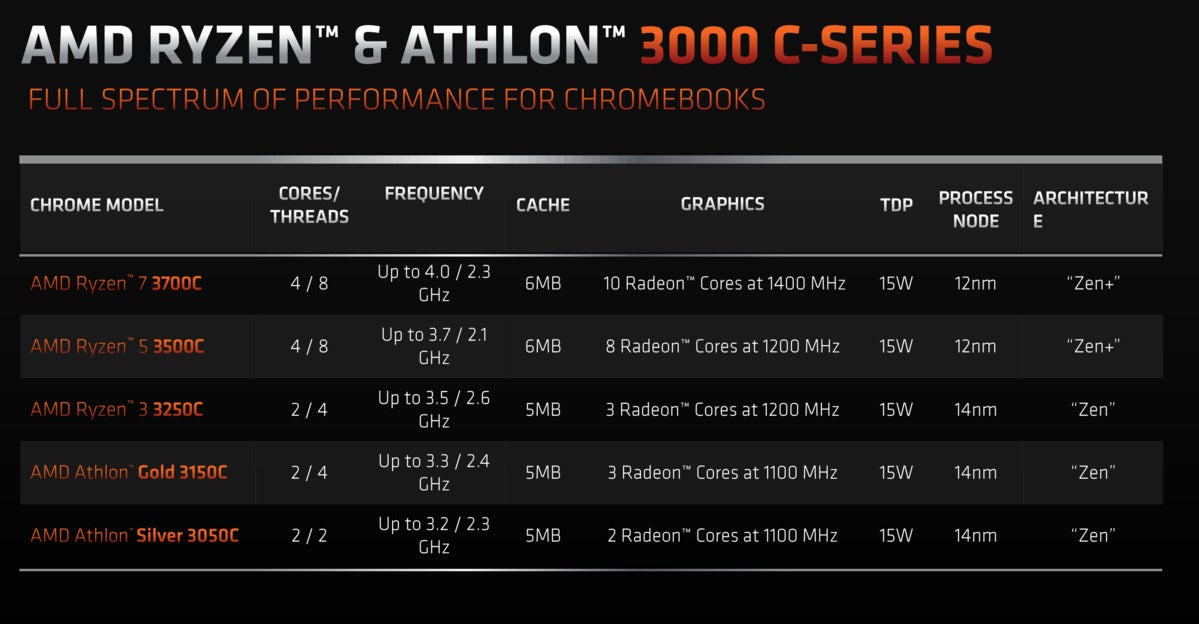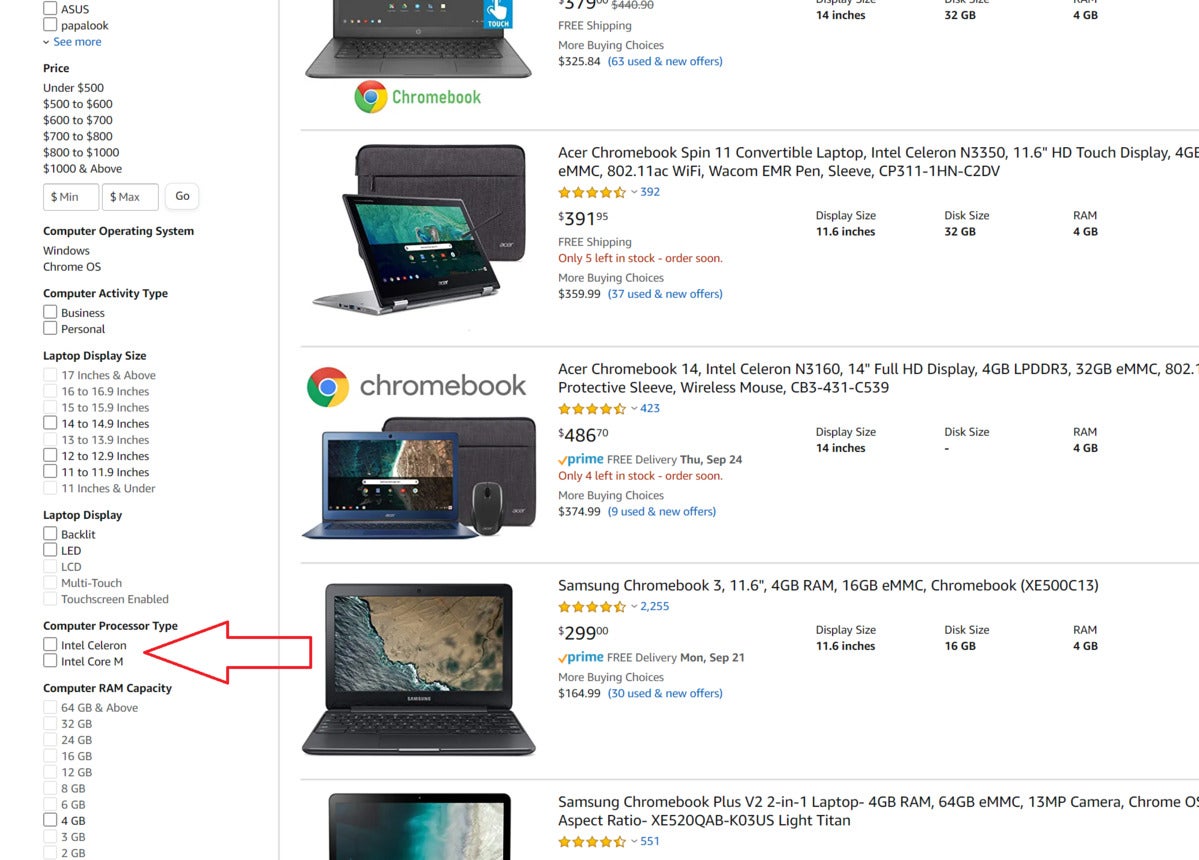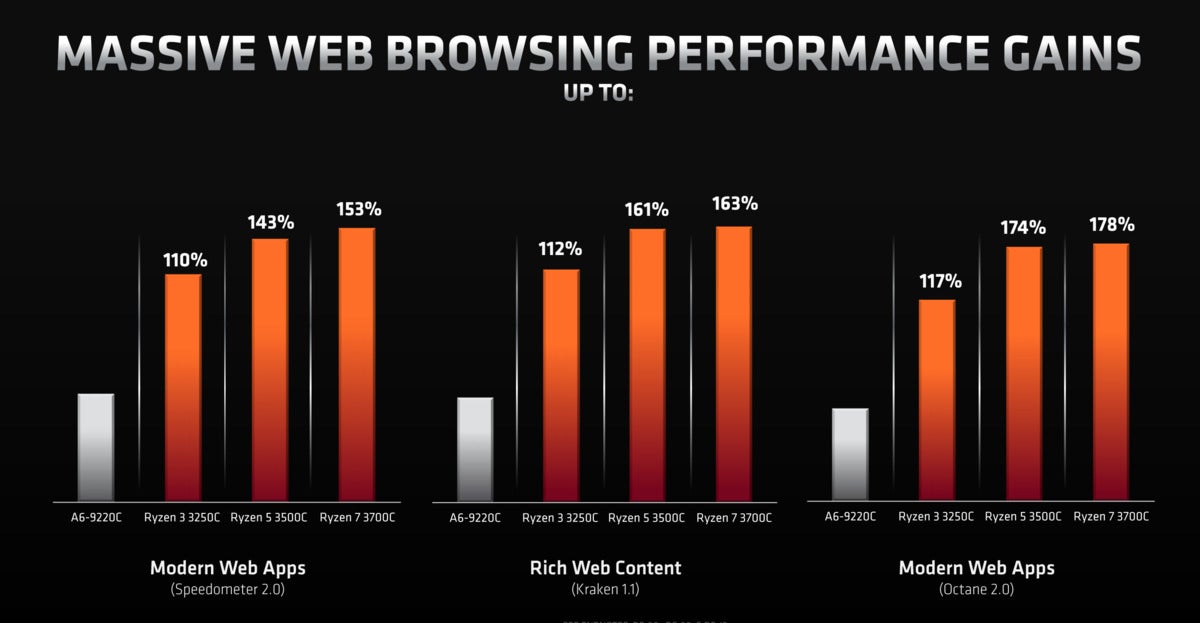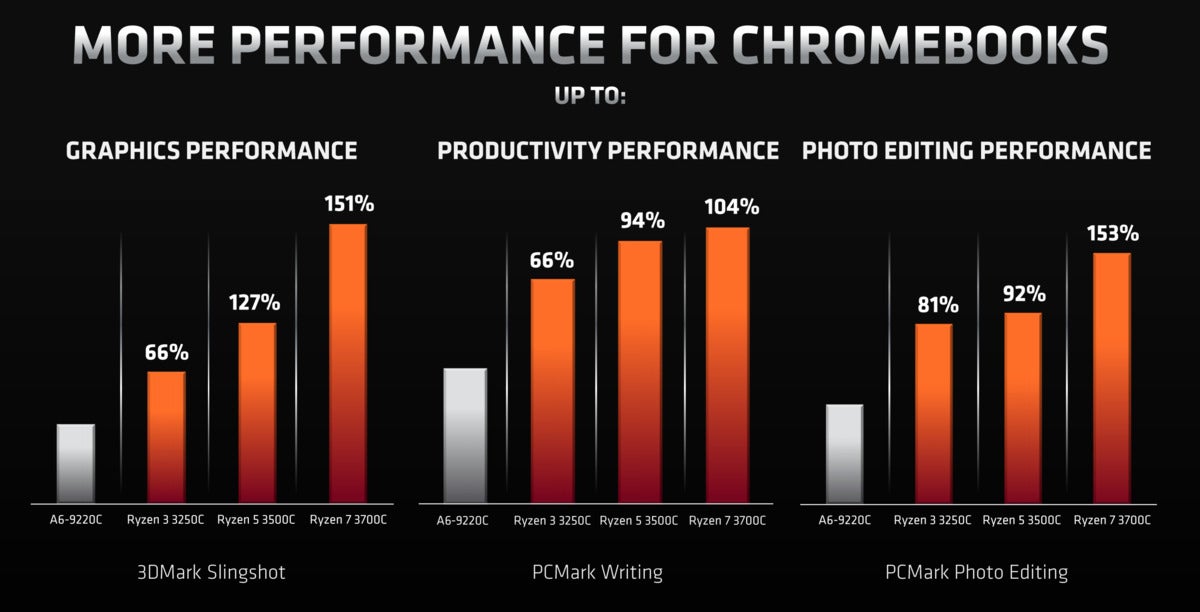
[ad_1]
AMD has adapted its Ryzen microprocessor to address the growing Chromebook segment, with a new C-series lineup for mid-level and premium models.
In total, AMD is offering five new processors in its Athlon and Ryzen families, though they’re simply rebadged versions of existing chips. Robert Hallock, AMD’s director of technical marketing, said that the company was using the “C” designations to make it easier for consumers to spot a Ryzen-powered Chromebook while poring through lists of available options.
According to IDC, AMD’s share of Chromebooks is surprisingly large: 21 percent of all Chromebooks, all of them based around the older A-series processors that AMD launched for Chromebooks in 2019. AMD hopes to ramp up its presence. In July, IDC reported that the United States’ PC market, including PCs and Chromebooks, jumped 11.2 percent as work-from-home employees and students snapped up devices.
 AMD
AMDAMD’s five new Athlon and Ryzen processors for Chromebooks.
“Chrome as a market is growing very well,” Hallock said. “That’s an opportunity for AMD. We want to be in big, growing markets.”
Intel seems to dominate Chromebook sales at the moment. All but three of the top fifteen Chromebooks on Amazon’s list of best-selling Chromebooks were powered by Intel Celeron processors, with the exception of two models powered by a Samsung Exynos chip, as well as a Chromebook with a Rockchip chip inside. Amazon’s list of best Chromebooks doesn’t even have any CPU filtering options other than Intel chips.
 IDG
IDG No respect: Amazon’s Chromebooks are dominated by Intel Celeron processors. (Captured from Amazon’s list of “best Chromebooks” on September 17, 2020)
Hallock said AMD believes that Chromebooks now demand the performance that mainstream PCs require, citing the tendency to load up browser tabs running multiple productivity applications, powering external monitors, and running Linux and Android applications. The new Athlon-C family will be used for Chromebooks between $300 to $450, executives said, overlapping with the Ryzen 3. The Ryzen 5 segment will address Chromebooks between $500 and $700—which, at least according to Amazon’s listings, are few and far between.
However, Hallock also said AMD expects six design wins in 2020 from Asus, HP, and Lenovo, shared between the new Athon and Ryzen chips. The Zen+ platform upon which these chips are based also enable Wi-Fi 6 and Bluetooth 5 compatibility, though Hallock declined to confirm whether or not the design wins will include these features. AMD will continue selling the A-series chips into Chromebooks, Hallock added.
What will be inside the new Ryzen Chromebooks
AMD will ship a pair of Athlon parts: the Athlon Silver 3050 C (2 cores, 2 threads, 2.3GHz base/3.2GHz turbo) and the Athlon Gold 3150C (2 cores, 4 threads, 2.4GHz base/3.2GHz turbo). Three Ryzen cores will accompany them: the Ryzen 3 3250C (2 cores, 4 threads, 2.6GHz base/3.5GHz turbo), the Ryzen 5 3500C (4 cores, 8 threads, 2.1GHz base/3.7GHz turbo), and the Ryzen 7 3700C (4 cores, 8 threads, 2.3GHz base/4.0GHz turbo). All five also contain varying levels of integrated graphics. All consume 15 watts, though they can be downclocked to consume as little as 9 watts.
 AMD
AMDAMD claims its new chips will excel in gen-over-gen comparisons in both web browsing…
Naturally, the gen-over-gen gains are impressive. In PCMark’s writing benchmark, performance will be between 66 percent to 104 percent faster than AMD’s A6-9220C. Graphics and photo editing will see similar gains—at least 66 percent and 81 percent in each category.
 AMD
AMD…and more general benchmarks, too.
AMD sees the potential for Chromebooks in the education market, but also in the enterprise, as a work-from-home solution that can connect to the cloud. Granted, it’s taken about two years for AMD to migrate Ryzen from the desktop, to notebooks, and finally to Chromebooks. Hallock wasn’t deterred. “Slow and steady wins the race,” he said.
[ad_2]
Source link